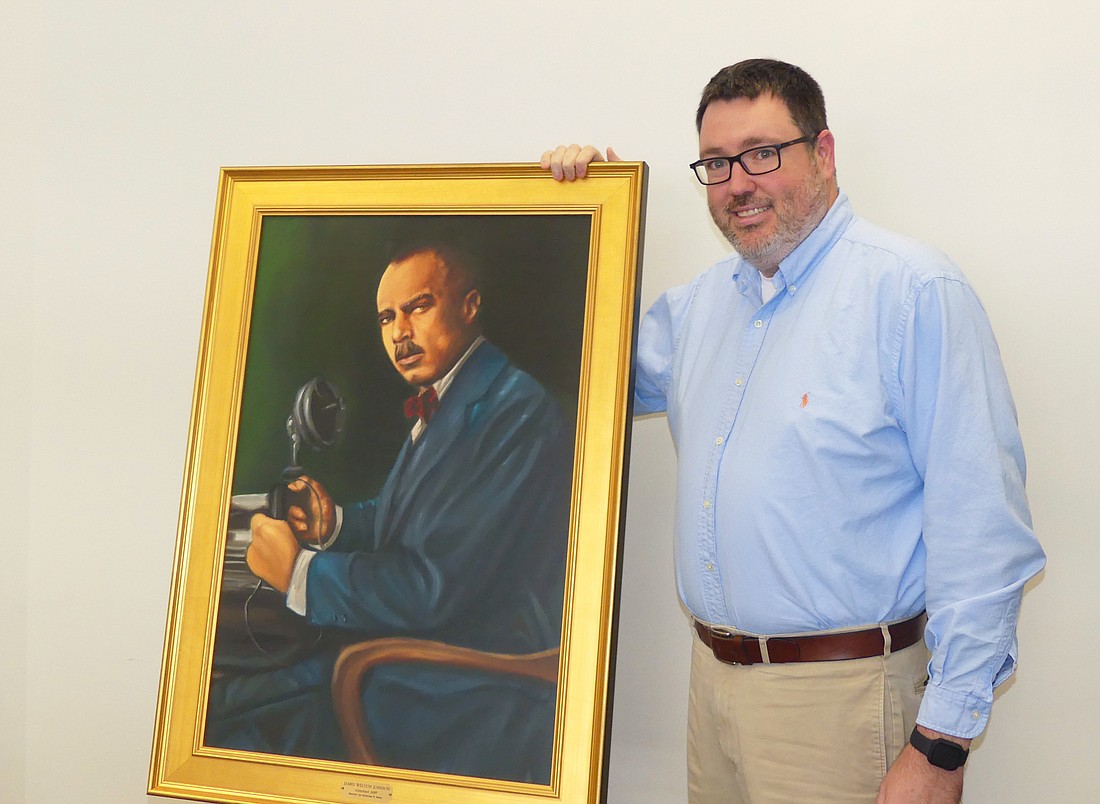
The Jacksonville Bar Association and D.W. Perkins Bar Association will host an exhibit honoring Florida attorneys who pioneered diversity and inclusion in the profession.
The Florida Bar’s “Path to Unity” campaign is a traveling legal history project that tells the story of the Bar’s journey from its segregated past to inclusion today.
The exhibit will be installed on the ground floor of the atrium at the Duval County Courthouse the week of Oct. 11 and will remain through Oct. 22, said JBA Executive Director Craig Shoup.
The local Path to Unity Committee comprises Co-chairs Christen Luikart and Joni Poitier, Perkins Bar President Obinna Anum, JBA President Michael Orr, Michelle Bedoya Barnett, LaTesha Campbell, Tony Hill, Octavius Holliday, Christine Michel, Angie Miller and Shoup.
The five Floridians honored for breaking barriers of race, gender, ethnicity, sexual orientation and disability are:
• James Weldon Johnson, 1871-1938, who became the first African American admitted to The Florida Bar through an examination.
Born in Jacksonville, he moved to Atlanta to attend high school and college and returned to Jacksonville as principal of Stanton Elementary School.
While expanding Stanton into a 12-year school, Johnson studied law, eventually winning admission to the Bar after examination by three lawyers and a judge.
In 1900, he wrote the poem “Lift Every Voice and Sing” which his brother, John, later set to music.
• Judge Mario Goderich began practicing law in Cuba in 1957 and immigrated to Miami in 1961.
He enrolled in the University of Miami School of Law, graduating in 2 1/2 years. It took another three years before he could become a citizen and then join The Florida Bar. He was admitted in 1969.
Goderich became the first president of the Cuban American Bar Association in 1974 and was appointed as a judge of industrial claims the following year. In 1978, he was appointed as an 11th Circuit judge and was elected and reelected in 1980 and 1986. In 1990, Goderich was appointed to the Third District Court of Appeal where he served until retiring in 2005.
In all of his judicial posts, he was the first Hispanic/Cuban American to hold the post.
• James Kracht joined The Florida Bar in 1976 after graduating from Harvard University and Harvard Law School.
Kracht, who is blind, served more than 25 years on the Florida Council for the Blind, including as president and has received the council’s President’s Award and the W.A. Ouzts Award.
In 2005, he was among those urging the state to require that any new voting systems be accessible for those with vision, hearing and mobility disabilities.
• Anna Brenner Meyers, 1896-1983, first was a nurse and then a teacher in New York City, organizing the Medical Social Service of Israel Zion, working at the New York City Crime Prevention Bureau and in the Emergency Relief Administration.
She graduated from the Brooklyn Law School of St. Lawrence University and began practicing law in Miami in 1936.
In addition to her law career, Meyers was chair of the Miami Beach Public Library board of trustees, chair of the Greater Miami Women’s Division of Bonds for Israel and a member of the Dade County School Board.
Meyers was a founding member and first president of the Florida Association of Women Lawyers (now the Florida Association for Women Lawyers).
• Since joining The Florida Bar in 1984, Larry Smith has advocated for the LGBTQ community, including helping persuade Orlando to amend its human rights ordinance to prohibit workplace, housing and public accommodation discrimination on the basis of sexual orientation.
Smith organized the Central Florida Gay and Lesbian Law Association, the first LGBTQ Bar association outside of South Florida, and is a past president.
In 2013, he received the Diversity Leadership Award from the American Bar Association Section of Litigation and in 2016 received The Florida Bar’s G. Kirk Haas Humanitarian Award.
Smith also is a past recipient of the Young Lawyers Division Diversity Award.